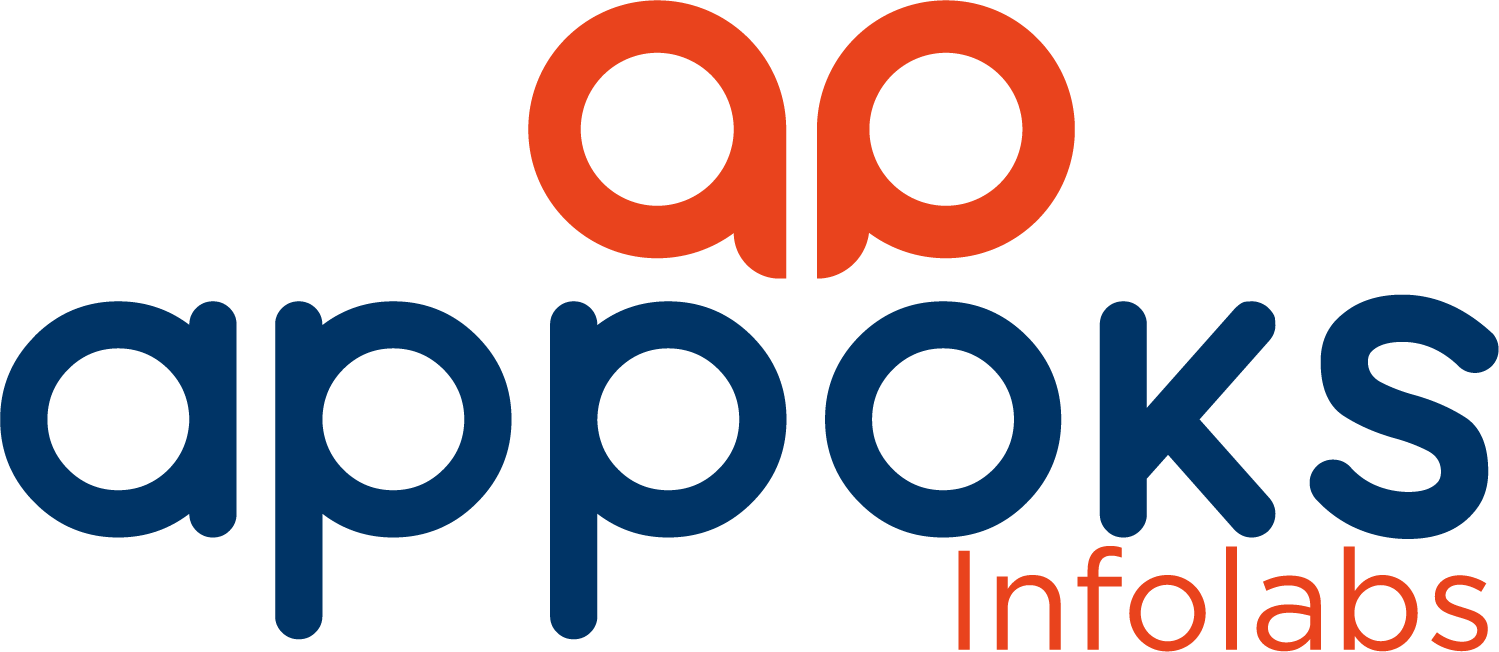What is PHP (Hypertext Preprocessor) in Web Development
PHP (Hypertext Preprocessor) is a widely used server-side scripting language that plays a pivotal role in web development. Originally created by Rasmus Lerdorf in 1994, PHP has evolved into one of the most popular programming languages for creating dynamic and interactive websites. Its primary purpose is to generate dynamic web content, making it possible to create websites that respond to user interactions and input.
Role in Web Development
PHP’s main role in web development is to enable the creation of dynamic websites. Unlike static websites that present the same content to every visitor, dynamic websites tailor their content and behavior based on user input, database interactions, and various conditions. PHP achieves this by being embedded directly within HTML code, allowing developers to mix dynamic and static content seamlessly.
Widespread Use in Creating Dynamic Websites
PHP’s widespread use in creating dynamic websites can be attributed to several key factors:
- Ease of Learning and Use: PHP’s syntax is similar to C and other programming languages, making it relatively easy for developers to learn and work with.
- Open Source: PHP is open-source, which means it’s freely available to use, modify, and distribute. This has contributed to its wide adoption across the web development community.
- Platform Independence: PHP runs on various operating systems (Windows, Linux, macOS) and supports multiple web servers, making it highly versatile and accessible.
- Integration with Databases: PHP seamlessly integrates with a variety of databases, allowing developers to create websites that can store and retrieve data dynamically.
- Extensive Documentation and Community Support: PHP has a robust community of developers who contribute to its ongoing development and maintenance. The language is well-documented, making it easier for both beginners and experienced developers to find resources and solutions.
- Frameworks and CMS: PHP boasts numerous frameworks (such as Laravel, Symfony, and CodeIgniter) and content management systems (like WordPress, Joomla, and Drupal), which accelerate development by providing pre-built components and structures.
- Scalability: PHP’s scalability capabilities enable it to handle everything from small personal websites to large-scale enterprise applications.
- Rapid Prototyping: PHP’s quick development cycle makes it suitable for rapid prototyping, allowing developers to experiment and iterate more efficiently.
The Role of a PHP Programmer
Role of a PHP Programmer in Creating and Maintaining Web Applications
A PHP programmer plays a crucial role in the development and maintenance of web applications. Their responsibilities extend beyond writing code; they are instrumental in shaping the functionality and interactivity of websites. Here’s how PHP programmers contribute to the process:
- Coding and Development: PHP programmers are responsible for writing server-side code using the PHP language. They create dynamic web pages that respond to user interactions, retrieve and manipulate data from databases, and generate content based on various conditions.
- Functionality Implementation: PHP programmers take the functional requirements of a web application and translate them into actual features. They develop modules, components, and scripts that handle user input, form submissions, authentication, and data processing.
- Database Integration: PHP programmers work with databases to store, retrieve, and manipulate data. They create queries to interact with databases, ensuring that the web application can effectively manage and present information to users.
- User Interaction: PHP programmers develop scripts that enable user interactivity on websites. This includes features like form validation, user registration and login, comments, ratings, and personalized content delivery.
- Backend Logic: PHP programmers handle the logic that runs behind the scenes of a web application. This can involve calculations, data manipulation, security checks, and decision-making processes that ensure the application functions correctly and securely.
- Error Handling and Debugging: Bugs and errors are inevitable in software development. PHP programmers are responsible for identifying, diagnosing, and fixing issues in the code to ensure smooth and error-free performance.
- Performance Optimization: PHP programmers optimize code for efficiency and speed. They work to minimize load times, reduce server resource usage, and improve the overall performance of the web application.
- Security: Web application security is paramount. PHP programmers implement measures to prevent vulnerabilities like SQL injection, cross-site scripting (XSS), and cross-site request forgery (CSRF) attacks.
- Collaboration: PHP programmers often work as part of a development team. They collaborate with front-end developers, designers, and other team members to ensure seamless integration between the server-side and client-side components of the application.
- Maintenance and Updates: After the initial development, PHP programmers are responsible for maintaining the web application. This includes addressing issues, adding new features, implementing updates, and ensuring the application remains current and functional over time.
Contribution to Functionality and Interactivity
PHP programmers contribute significantly to the functionality and interactivity of websites by:
- Enabling Dynamic Content: They create scripts that generate dynamic content based on user input, database interactions, and real-time conditions. This allows websites to adapt and respond to individual user needs.
- Facilitating User Input: PHP programmers implement forms, validation, and data processing, enabling users to submit information and interact with the website.
- Enabling Data Presentation: They retrieve data from databases and structure it for presentation, ensuring that users can access relevant and up-to-date information.
- Powering User Accounts: PHP programmers develop user authentication and account management systems, allowing users to register, log in, and access personalized content.
- Enhancing User Experience: Through their work, PHP programmers contribute to a richer and more engaging user experience by providing features like real-time updates, interactive elements, and dynamic visual content.
In essence, PHP programmers are the architects behind the scenes, bringing life to web applications by implementing the logic, functionality, and interactivity that users interact with and enjoy.
PHP Programming Salary Trends
Average Salary Range for PHP Programmers
The salary range for PHP programmers can vary based on a combination of factors, including experience, location, skills, industry demand, and company size. Here’s an overview of how these factors influence salary variations:
1. Experience:
- Junior PHP Programmer (0-2 years): The average salary for entry-level PHP programmers with little to no experience tends to be on the lower end of the scale. Junior programmers typically focus on basic coding tasks and may earn an annual salary ranging from $40,000 to $60,000, depending on other influencing factors.
- Mid-Level PHP Programmer (2-5 years): As programmers gain more experience and proficiency, their salaries tend to increase. Mid-level PHP programmers who can handle more complex tasks and contribute to larger projects might earn between $60,000 and $80,000 per year.
- Senior PHP Programmer (5+ years): Highly experienced PHP programmers with a deep understanding of the language, architecture, and best practices can command higher salaries. Senior programmers who lead projects, mentor junior developers, and make critical technical decisions may earn salaries ranging from $80,000 to $120,000 or more.
2. Location:
Salaries for PHP programmers can vary significantly based on the cost of living and demand for tech talent in different geographic regions. Major tech hubs and cities with a strong tech presence tend to offer higher salaries. For example:
- San Francisco Bay Area, USA: Salaries are among the highest in the world due to the high cost of living and intense competition for tech talent. Senior PHP programmers might earn well over $120,000 per year.
- New York City, USA: Another high-demand location, offering competitive salaries ranging from $80,000 to $120,000 for senior programmers.
- Austin, Texas, USA: An emerging tech hub with a lower cost of living compared to the coasts. Salaries could range from $60,000 to $100,000 for senior PHP programmers.
3. Skills:
Specialized skills and technologies can significantly impact salary levels. PHP programmers with expertise in related technologies like databases (SQL, NoSQL), front-end frameworks (JavaScript, CSS), and PHP frameworks (Laravel, Symfony) often command higher pay.
4. Industry Demand:
Industries with high demand for web development and PHP expertise may offer higher salaries. E-commerce, fintech, healthcare, and startups often seek PHP programmers to build and maintain their web applications, potentially leading to more competitive compensation packages.
5. Company Size:
The size and scale of the company can also influence salaries. Large corporations and established tech companies might offer higher salaries and additional benefits compared to smaller startups or agencies.
6. Certifications and Education:
While not always a strict requirement, certifications and higher education in computer science or related fields can contribute to higher salaries by showcasing a programmer’s dedication to professional growth and expertise.
7. Remote Work:
With the rise of remote work, PHP programmers may have the opportunity to work for companies located in higher-paying regions while residing in areas with lower living costs, potentially impacting their overall compensation.
Essential Skills for PHP Developers
Key Technical Skills for PHP Development
Proficiency in PHP development requires a combination of programming skills, understanding of web technologies, and knowledge of best practices. Here are the key technical skills necessary for PHP developers:
- PHP Syntax and Coding Standards:
- Strong command of PHP syntax, including variables, data types, operators, control structures (if statements, loops), functions, and classes.
- Adherence to PHP coding standards (PSR-1, PSR-2, PSR-12) for consistent and maintainable code.
- Web Technologies:
- HTML: Understanding of Hypertext Markup Language for structuring web content.
- CSS: Proficiency in Cascading Style Sheets for styling and layout of web pages.
- JavaScript: Basic understanding to enhance interactivity and dynamic behavior on the client-side.
- Database Management:
- MySQL: Knowledge of relational databases, including creating, querying, and managing databases using MySQL or similar database management systems.
- Database Design: Understanding of database design principles, normalization, indexing, and relationships.
- PHP Frameworks:
- Familiarity with popular PHP frameworks like Laravel, Symfony, CodeIgniter, or Yii, which provide pre-built components, MVC architecture, and streamlined development.
- Version Control:
- Proficiency in using version control systems like Git to manage and track changes in code collaboratively.
- API Integration:
- Ability to integrate with external APIs (Application Programming Interfaces) for data retrieval, payment processing, social media integration, etc.
- Server-Side Development:
- Understanding of server-side concepts, including handling HTTP requests and responses, sessions, cookies, and server configurations.
- Security Best Practices:
- Knowledge of common security vulnerabilities and best practices to prevent issues like SQL injection, XSS attacks, and CSRF attacks.
- Debugging and Testing:
- Proficiency in debugging tools and techniques to identify and fix errors in code.
- Knowledge of unit testing and test-driven development (TDD) principles.
- Performance Optimization:
- Ability to optimize PHP code for improved performance, including minimizing database queries, caching, and load balancing.
- Command Line Usage:
- Familiarity with the command-line interface for tasks like running scripts, managing files, and interacting with version control systems.
- Deployment and Hosting:
- Understanding of deployment processes and hosting environments, including configuring servers, domain management, and setting up SSL certificates.
- Content Management Systems (CMS):
- Familiarity with popular PHP-based content management systems like WordPress, Joomla, and Drupal.
- Agile and Collaboration:
- Ability to work in an Agile development environment, collaborate with cross-functional teams, and effectively communicate technical concepts to non-technical stakeholders.
PHP Developer Jobs: Opportunities and Demand
Current Job Market for PHP Developers and Skill Demand
The job market for PHP developers remains robust, as their skills are still in demand despite the emergence of new programming languages and frameworks. PHP continues to be a key player in web development, especially for building dynamic and interactive websites. Here’s an overview of the current job market for PHP developers and the demand for their skills:
1. Demand for PHP Skills:
- Web Development: PHP remains a foundational language for web development, with a strong focus on creating dynamic websites and web applications.
- Content Management Systems (CMS): PHP is integral to popular CMS platforms like WordPress, Joomla, and Drupal, which power a significant portion of websites worldwide.
- E-Commerce: Many e-commerce platforms and online marketplaces rely on PHP to create feature-rich online stores with personalized user experiences.
- Custom Web Applications: PHP is commonly used for creating custom web applications, from project management tools to customer relationship management (CRM) systems.
2. Industries and Companies Hiring PHP Developers:
- Startups: Startups often rely on PHP to quickly build prototypes and launch minimum viable products (MVPs) due to its ease of use and rapid development capabilities.
- Small and Medium Enterprises (SMEs): Many SMEs choose PHP for building their web presence, such as company websites, blogs, and simple web applications.
- E-Commerce and Retail: PHP is extensively used to develop e-commerce websites, online marketplaces, and shopping carts due to its ability to handle large amounts of data and transactions.
- Media and Publishing: PHP powers content-heavy websites and news portals, where dynamic content delivery and interaction are essential.
- Healthcare and Medical Services: PHP developers contribute to building patient portals, appointment booking systems, and healthcare management applications.
- Education and E-Learning: PHP is used to create online learning platforms, course management systems, and educational resource websites.
- Travel and Hospitality: Companies in this sector use PHP to build booking engines, reservation systems, and interactive travel planning tools.
- Technology and Software Services: Even within the tech industry, PHP is utilized for creating developer documentation sites, knowledge bases, and collaboration platforms.
- Nonprofits and NGOs: PHP is often chosen by organizations with limited budgets to establish an online presence and engage with their communities.
3. Remote Work Opportunities:
- Remote work options have expanded significantly in recent years, enabling PHP developers to work for companies located anywhere in the world while residing in a location that suits their lifestyle.
4. Skill Evolution:
- PHP developers are also expected to keep up with the evolving tech landscape. This includes familiarity with modern PHP frameworks (Laravel, Symfony), front-end technologies (JavaScript frameworks), and DevOps practices for deployment and automation.
Freelance PHP Jobs: Exploring the Gig Economy
Rise of Freelance Opportunities for PHP Developers in the Gig Economy
The gig economy has revolutionized the way professionals work, providing opportunities for individuals to offer their skills and services on a project-by-project basis. This trend has particularly impacted the tech industry, including PHP developers, who now have access to a wide range of freelance opportunities. Here’s how the rise of freelance opportunities for PHP developers has taken place in the gig economy:
1. Flexibility and Autonomy:
- Freelancing allows PHP developers to have greater control over their work schedule and projects. They can choose projects that align with their skills and interests, providing a higher level of job satisfaction.
2. Global Reach:
- Freelance platforms enable PHP developers to work with clients from around the world, breaking down geographical barriers and expanding their client base.
3. Variety of Projects:
- Freelancing offers PHP developers exposure to diverse projects across industries, allowing them to continuously learn and grow as they tackle different challenges.
4. Portfolio Building:
- Freelancers can build a diverse portfolio by working on various projects, showcasing their expertise in different areas of PHP development.
5. Income Potential:
- Skilled PHP developers with a strong reputation can command higher rates in the freelance market, potentially leading to increased income compared to traditional employment.
6. Remote Work:
- Many freelance opportunities for PHP developers are remote, allowing them to work from their preferred location and eliminate the need for commuting.
Freelance Platforms for PHP Programmers:
Several freelance platforms cater to PHP developers seeking freelance opportunities in the gig economy. Here are some popular platforms where PHP programmers can find projects and clients:
- Upwork: One of the largest freelance platforms, Upwork offers a wide range of PHP development projects, from small tasks to long-term contracts.
- Freelancer: Similar to Upwork, Freelancer hosts a variety of PHP-related projects, allowing developers to bid on projects and connect with clients.
- Guru: Guru offers a platform for PHP developers to showcase their skills and find projects across different industries.
- Toptal: Toptal is known for connecting top-tier freelancers with high-quality clients. It has a rigorous screening process for freelancers.
- PeoplePerHour: This platform specializes in hourly-based projects, making it suitable for PHP developers looking for shorter tasks or gigs.
- Fiverr: Fiverr focuses on microservices, where PHP developers can offer specific services and expertise to clients.
- Codeable: Codeable is a platform exclusively for WordPress development, making it ideal for PHP developers with expertise in WordPress.
- SimplyHired: Although not exclusively for freelancers, SimplyHired lists various PHP-related job opportunities, including freelance gigs.
- FlexJobs: Similar to SimplyHired, FlexJobs features remote and flexible job listings, including freelance PHP projects.
It’s important for PHP developers considering freelancing to carefully choose platforms that align with their skills, preferences, and career goals. Establishing a strong profile, showcasing previous work, and maintaining a positive reputation can significantly enhance a developer’s success in the freelance gig economy.
Conclusion: Embracing a PHP Programming Journey
Empower Your Journey: Explore PHP Programming
If you’re intrigued by the potential of PHP programming, now is the perfect time to explore this dynamic skill set. By diving into PHP, you’re opening doors to a world of creativity, innovation, and meaningful impact. Here’s how you can get started and continue your journey:
- Learning Resources: There are numerous online tutorials, courses, and documentation available for learning PHP. Websites like Codecademy, Udemy, and the official PHP website offer excellent resources.
- Personal Projects: Practice is key. Start by creating personal projects or simple websites to apply your PHP skills and gain hands-on experience.
- Frameworks and Tools: Familiarize yourself with popular PHP frameworks like Laravel, Symfony, or CodeIgniter. These frameworks streamline development and expand your skill set.
- Collaboration and Networking: Join online communities, forums, and coding meetups to connect with fellow developers, share knowledge, and collaborate on projects.
- Freelance Platforms: If you’re looking to explore freelance opportunities, platforms like Upwork, Freelancer, and Toptal can help you find clients seeking PHP expertise.
Embrace the Journey: Your Impact Awaits
In a world where web experiences drive businesses and connect people, PHP programming skills are your gateway to making a tangible impact. By honing your abilities, pursuing opportunities, and remaining curious, you’re not just developing websites – you’re shaping the digital landscape that defines our modern age. Embrace the journey, seize the potential, and embark on a fulfilling career as a PHP developer. Your contribution matters, and the web development world is waiting for your unique talents to shine.
Additional Resources and References
1- How to Hire Laravel developer for your project
2- Hire top certified website developer
3- We makes Online Dispatching softwares
Our blog articles:
Please schedule your free consultation time now
[bookingpress_form]




